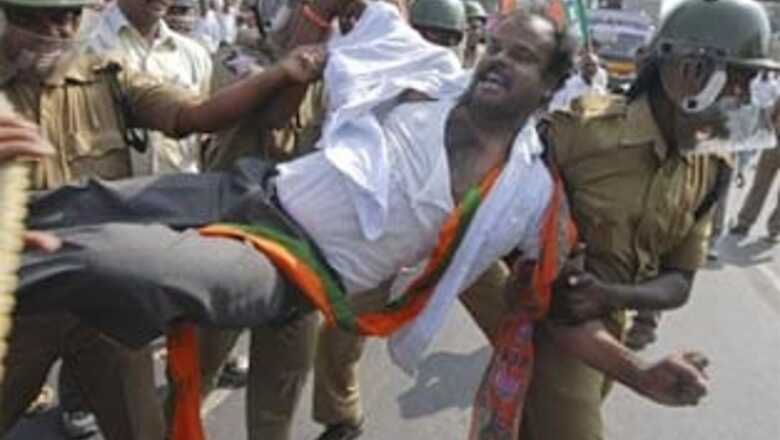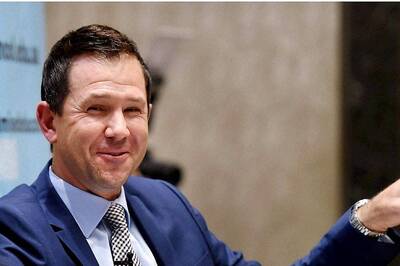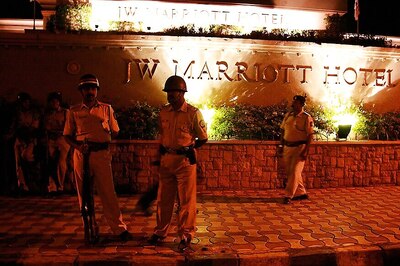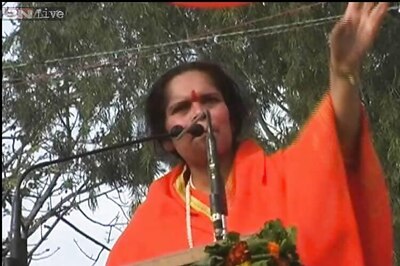
views
Hyderabad: In June, when then Andhra Pradesh chief minister Y S Rajasekhara Reddy asked Telangana Rashtra Samiti (TRS) president K Chandrasekhar Rao where he would hide after the humiliating electoral defeat, few would have thought that the goal of a separate state would be achieved in just six months.
Through his 11-day fast-unto-death supported by mass protests, the 55-year-old achieved what other leaders from the region could not in five decades.
For the TRS chief, who called off his fast late Wednesday and broke down while paying tributes to those who laid down their lives for the formation of Telangana, the sudden demise of Rajasekhara Reddy in a helicopter crash in September removed the biggest hurdle in achieving his goal.
YSR, as Rajasekhara Reddy was popularly known, was belligerent in his attacks on Rao. With his iron-like grip over the government and Congress and the kind of rapport he had with the central leadership, he never allowed Rao to dominate.
In October, when the Supreme Court declared Hyderabad a free zone in matters of recruitment to police department, KCR, as the TRS chief is known among his supporters, saw it as a golden opportunity to strike.
The death of YSR and the court order provided much needed oxygen to TRS reeling under the rout in March-April elections.
The TRS founder gave the slogan of "Telangana waley jago, Andhra waley bhago (Arise people of Telangana, run away people of Andhra)".
A frail-looking KCR has always been a crowd puller. Known for his acerbic criticism of his rivals with a mixture of Telugu and Urdu words, he attracted a huge crowd at the public meeting at Siddipet on October 21, where he threatened civil war for achieving separate state.
It was in 2001 that KCR quit as deputy speaker of the assembly and resigned from the Telugu Desam Party (TDP) to float the TRS. The former minister hailing from Medak district revived the decades old movement, which has almost died after the violent agitation of 1969.
His rallies proved an instant hit and the party made an impressive electoral debut in local body elections.
In the 2004 elections, which TRS fought in alliance with Congress, the party had bagged 26 assembly and five Lok Sabha seats.
Though he succeeded in taking the Telangana issue to the centrestage and extracted promises from Congress-led UPA government, he failed to achieve his goal.
His flip-flop on the issue, the repeated deadlines he fixed for achieving the goal, his perceived dictatorial attitude and controversial decisions disillusioned the party cadre and 10 legislators staged a revolt.
KCR pulled out of coalition governments and threatened to expose the Congress for betraying the people of Telangana. However, his gamble of going for by-elections last year boomeranged as the TRS could retain only seven assembly and two Lok Sabha seats.
He found a new ally in TDP after it backed the demand for separate Telangana before the elections early this year.
TRS contested 50 of the 119 Assembly seats in the Telangana region but won only 10. YSR interpreted this as the vote against bifurcation of Andhra Pradesh.
KCR's critics, including revolutionary balladeer Gaddar, said he was weakening the movement by running after votes instead of launching a mass movement.
Gaddar, who had also announced plans to launch his own party, was proved right as KCR succeeded in achieving through agitation what he could not through votes.




















Comments
0 comment